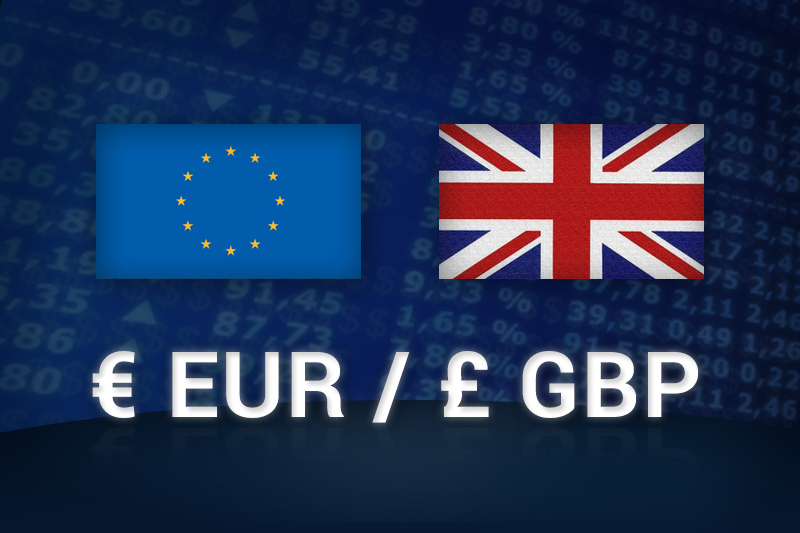Investing.com - The euro extended gains against the pound on Tuesday, despite Spain’s soaring borrowing costs and a sharp drop in the German ZEW economic sentiment index as market sentiment was buoyed by hopes that a coalition government can be formed in Greece.
EUR/GBP hit 0.8060 during European morning trade, the session high; the pair subsequently consolidated at 0.8055, gaining 0.35%.
The pair was likely to find support at 0.8023, the session low and resistance at 0.8108, Monday’s high.
Sentiment on the single currency was supported by hopes that Greece's New Democracy party will form a coalition government with the socialist Pasok party, which would allow Athens to resume negotiations with creditors on its international bailout deal.
Meanwhile, the yield on Spanish 10-year bonds eased back to 7.09% from a session high of 7.13% but remained above the critical 7% threshold amid concerns that a EUR100 billion bailout agreed earlier this month may not be enough to overhaul the country’s ailing banking system.
Earlier Tuesday, Spain’s Treasury sold EUR2.4 billion worth of 12-month government bonds at an average yield of 5.07%, up sharply from 2.98% at a similar auction last month. Spain also sold EUR64 million of 18-month debt at an average yield of 5.10%, up from 3.30% at a similar auction last month.
Elsewhere, the ZEW index of economic sentiment in Germany tumbled to minus 16.9 in June from 10.8 the previous month, amid concerns over political instability in Greece and worries over sovereign debt contagion.
The pound remained under pressure after official data showed that consumer prices in the U.K. unexpectedly fell to their lowest level in two-and-a-half years in May.
The U.K. Office for National Statistics said that consumer price inflation fell to 2.8% year-over-year from 3.0% in April, confounding forecasts for an unchanged reading.
The ONS said the unexpected decline in inflation was due to slower price rises for food and fuel.
The decline in inflation fuelled speculation over the possibility of more quantitative easing from the Bank of England, as until now inflation has been easing more slowly than the bank had hoped.
The euro was also up against the U.S. dollar, with EUR/USD up 0.30% to trade at 1.2615 and edged higher against the yen, with EUR/JPY inching up 0.08% to hit 99.58.
Later in the day, the U.S. was to publish official data on building permits and housing starts. Elsewhere, leaders from the Group of 20 nations were to hold a second day of talks in Los Cabos, Mexico.
EUR/GBP hit 0.8060 during European morning trade, the session high; the pair subsequently consolidated at 0.8055, gaining 0.35%.
The pair was likely to find support at 0.8023, the session low and resistance at 0.8108, Monday’s high.
Sentiment on the single currency was supported by hopes that Greece's New Democracy party will form a coalition government with the socialist Pasok party, which would allow Athens to resume negotiations with creditors on its international bailout deal.
Meanwhile, the yield on Spanish 10-year bonds eased back to 7.09% from a session high of 7.13% but remained above the critical 7% threshold amid concerns that a EUR100 billion bailout agreed earlier this month may not be enough to overhaul the country’s ailing banking system.
Earlier Tuesday, Spain’s Treasury sold EUR2.4 billion worth of 12-month government bonds at an average yield of 5.07%, up sharply from 2.98% at a similar auction last month. Spain also sold EUR64 million of 18-month debt at an average yield of 5.10%, up from 3.30% at a similar auction last month.
Elsewhere, the ZEW index of economic sentiment in Germany tumbled to minus 16.9 in June from 10.8 the previous month, amid concerns over political instability in Greece and worries over sovereign debt contagion.
The pound remained under pressure after official data showed that consumer prices in the U.K. unexpectedly fell to their lowest level in two-and-a-half years in May.
The U.K. Office for National Statistics said that consumer price inflation fell to 2.8% year-over-year from 3.0% in April, confounding forecasts for an unchanged reading.
The ONS said the unexpected decline in inflation was due to slower price rises for food and fuel.
The decline in inflation fuelled speculation over the possibility of more quantitative easing from the Bank of England, as until now inflation has been easing more slowly than the bank had hoped.
The euro was also up against the U.S. dollar, with EUR/USD up 0.30% to trade at 1.2615 and edged higher against the yen, with EUR/JPY inching up 0.08% to hit 99.58.
Later in the day, the U.S. was to publish official data on building permits and housing starts. Elsewhere, leaders from the Group of 20 nations were to hold a second day of talks in Los Cabos, Mexico.
